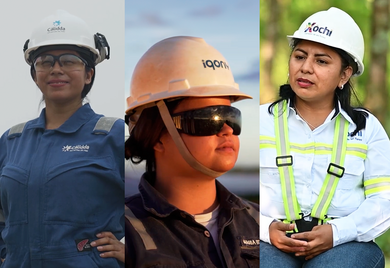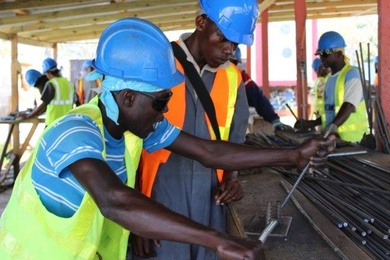Blogs Navigation
Sustainable BusinessRecent posts

Financial Health: Driving Growth in Latin America and the Caribbean
According to the latest Global Findex database, the proportion of adults in Latin America and the Caribbean (LAC) with account ownership rose from 39% in 2011 to over 75% in 2025. This increase was driven by the rise of digital-first financial service providers, expanded government transfers, and innovations that enhance the value proposition, such as the growth of e-commerce and instant payment systems in countries like Brazil, Peru, and Costa Rica.

IDB Invest and the New Push for the Private Sector in Paraguay
Imagine investing in a portfolio of projects in a country with sustained economic growth, low inflation, abundant clean energy, and preferential access to a regional market of 270 million consumers. That country is Paraguay, where IDB Invest has committed to mobilizing up to $1 billion to support strategic private-sector projects that drive sustainable development.

Energy and Transport Infrastructure: Projects Driving Jobs and Transforming Communities
IDB Invest works to boost job creation through the private sector and ensure these opportunities reach areas with the potential to develop new productive sectors and generate formal employment. Financing energy and transport infrastructure projects in Latin America and the Caribbean has been crucial for creating quality jobs and increasing women's workforce participation.

How to reduce your energy costs and become more competitive
These days, reducing production costs to increase competitiveness is a must. In a report titled Climate Solutions, the World Wildlife Fund notes that the world could cut its energy consumption by 40% by 2050 just by improving energy efficiency and energy conservation. But when looking for alternatives that don't sacrifice the quality of raw materials, not many entrepreneurs realize that a change in energy policy could save them a considerable amount on their energy bills.

Transformation of banks to reach unbanked: Cases from Jamaica and Paraguay
By Tomas Miller and Veronica Trujillo There have been remarkable advances in the role of banks in financial inclusion and development in Latin America and the Caribbean as measured by various indicators (access to bank accounts, supply of credit, insurance for micro and small enterprises, and availability of customer points of service) compared with levels in the previous decade. However, the region still falls short in terms of the overall penetration of its financial system and in comparison with other parts of the world. Access to and use of credit and savings—measured as the proportion of people that borrowed money or had savings accounts with formal financial institutions in the past year—reach only 11% and 14% of the region’s population, respectively. Also, the proportion of adults with any account at a financial institution or through a mobile banking provider is a mere 51%, compared with more than 60% globally, according to the The Global Findex Database 2014.

Sustainable Development Goals: The way forward for the private sector
An interview with Global Compact's Jaime García Alba on the Sustainable Development Goals In the coming days, world leaders from 193 countries will descend upon Addis Ababa, Ethiopia, for the Financing for Development Conference organized by the United Nations (UN). The goal will be to define a framework to implement the Sustainable Development Goals (SDGs) over the next 15 years. The private sector will play a key role, integrating business perspectives throughout the process.

Four ways to get more women on corporate boards in Latin America
Two weeks ago, Banco Santander invited 50 women to the University of California Los Angeles (UCLA) Anderson School of Management to participate in the W50 program. The W50 program is part of the Banco Santander Universities program. It builds on the decision of former Bank’s president Emilio Botín that Banco Santander should maximize its social impact through universities providing education and capacity building. Over 90% of Banco Santander’s Corporate Social Responsibility Program is invested in the Universities program, an investment of over US$240 (EUR 210) million in scholarships since 2005.

Water crises drive private sector innovation
Protecting areas that provide water through water funds highlights an innovative way to spur green growth driven by the private sector. With the on-going water shortages in Sao Paulo, Brazil, the region has a heightened awareness of the importance of securing water supply for big cities. Water supply links increasingly to deforestation and poor watershed management.

CEOs Talk Shop – Four sustainable investments to tackle business challenges
Whether you’re a global tourism operator in Jamaica or a midsize recycling company in Honduras, corporates of all sizes often face similar business challenges.


